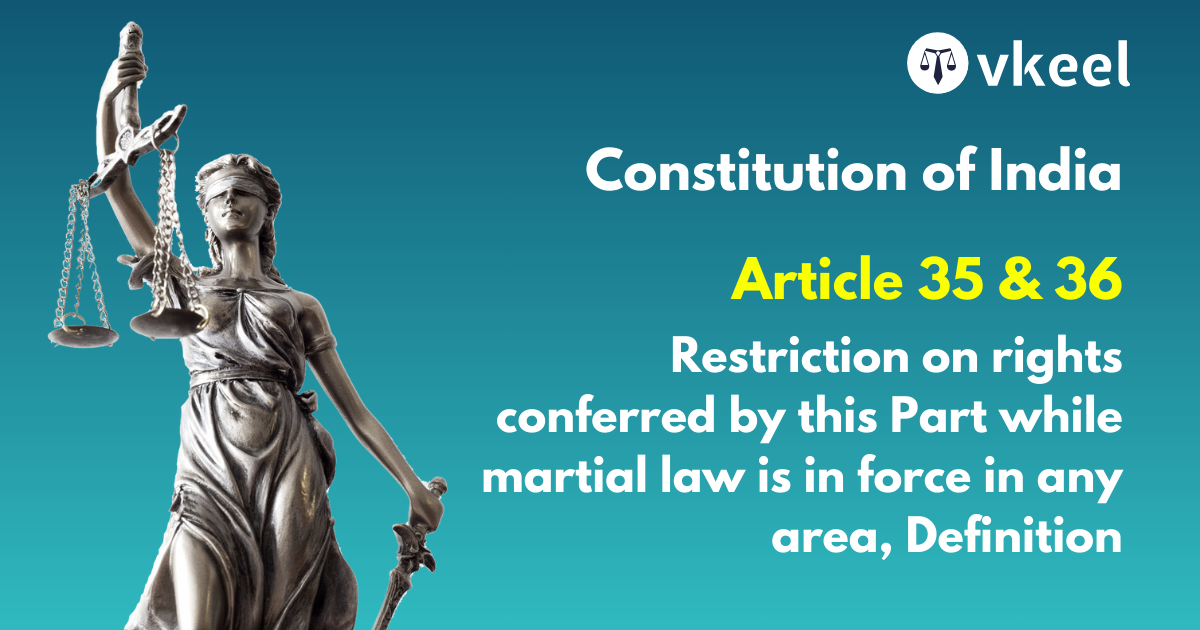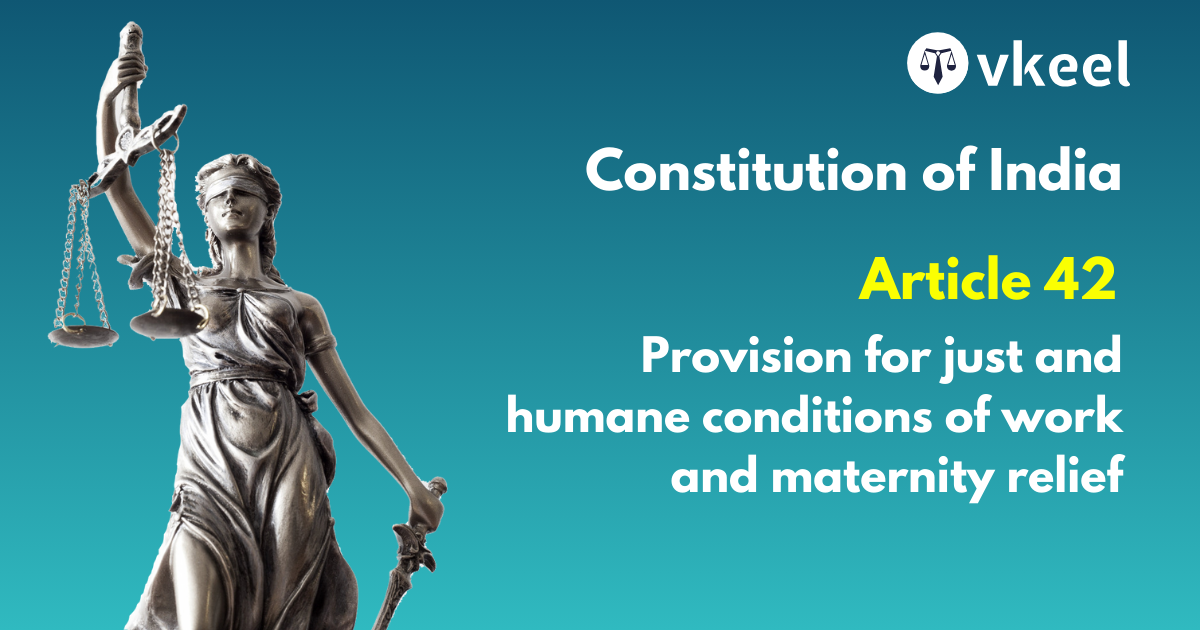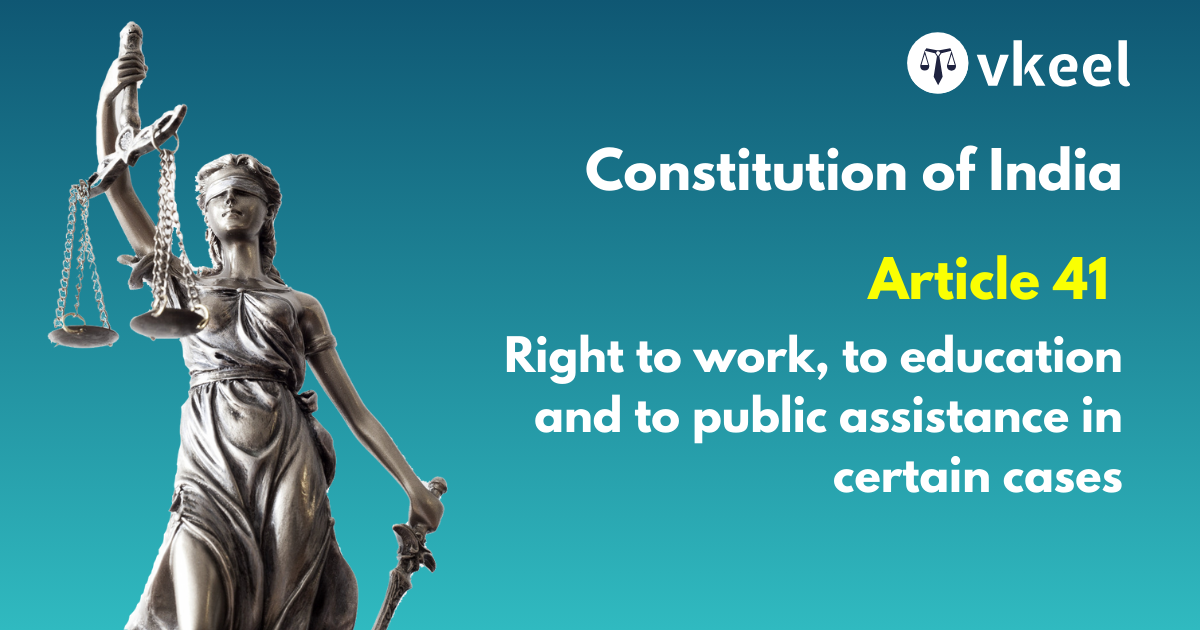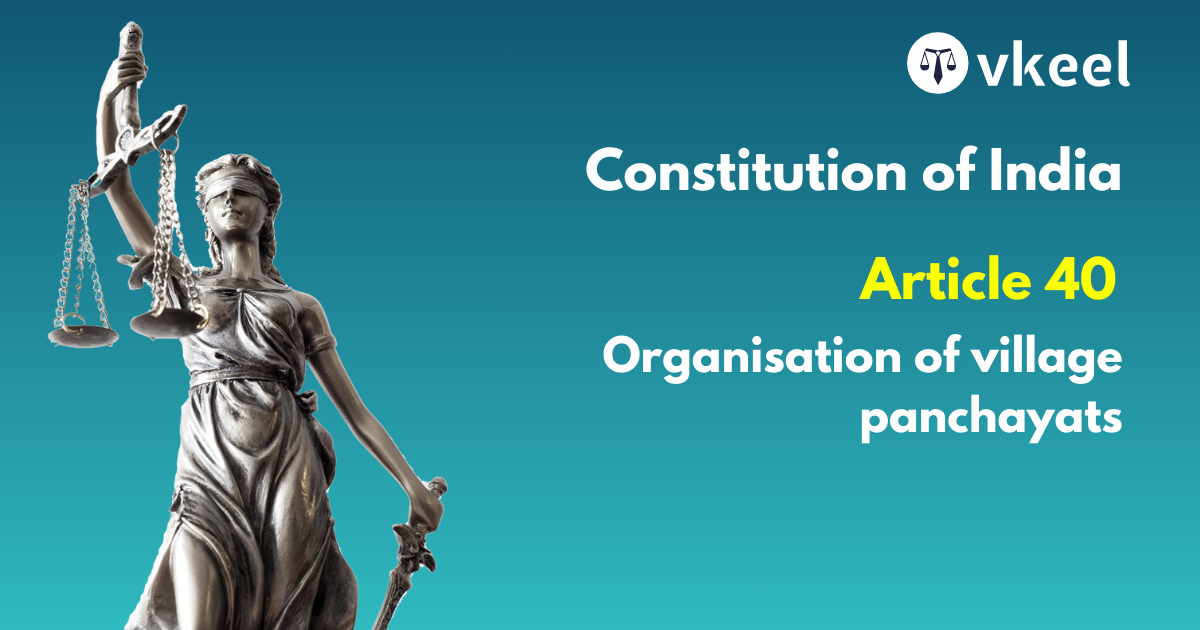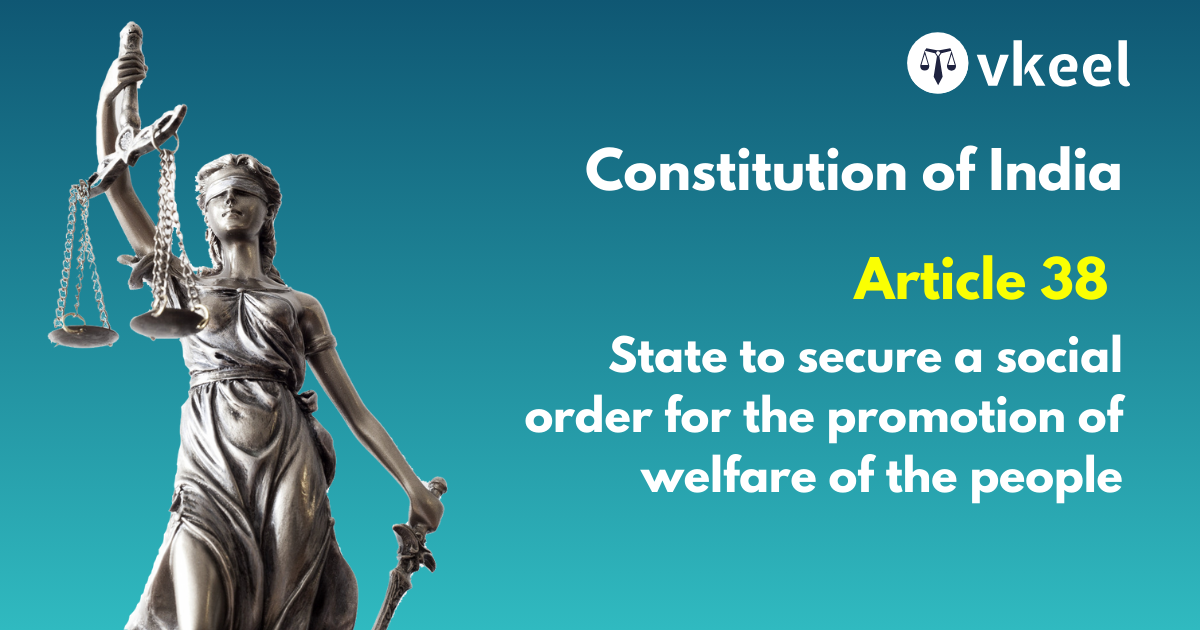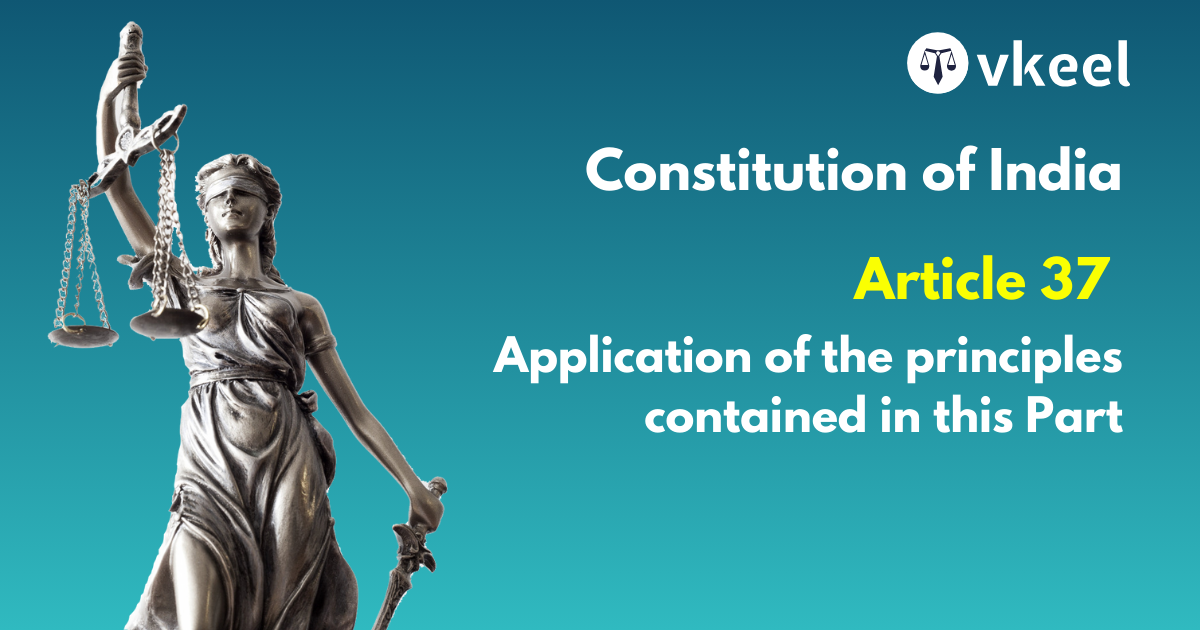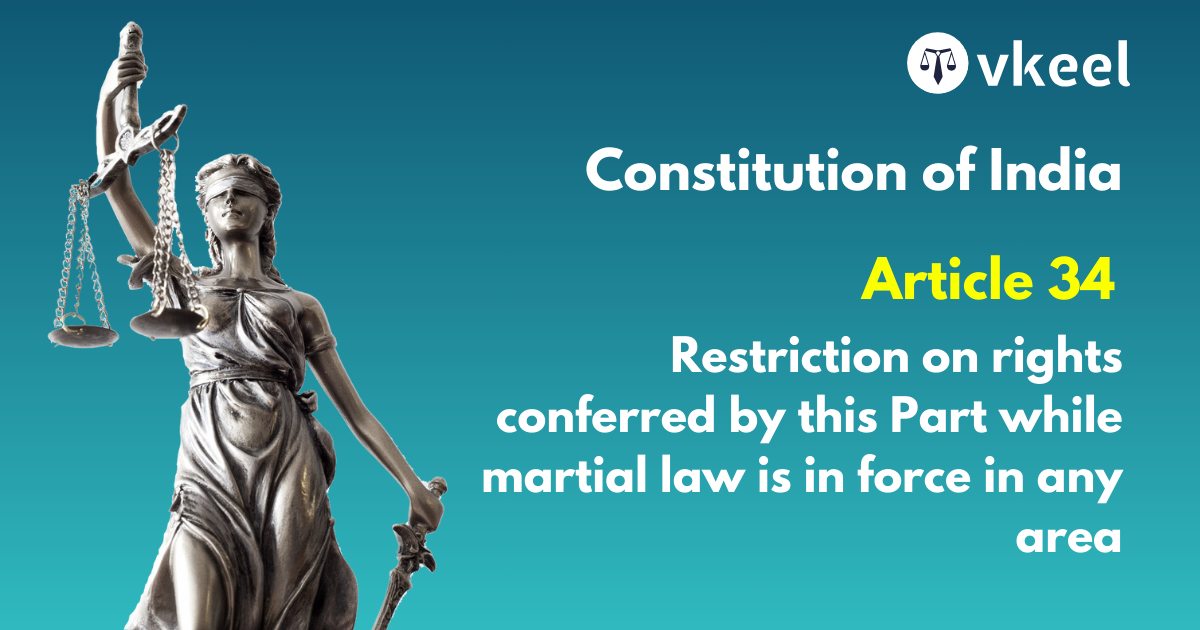Article 35 & 36 of the Constitution of India
By Joy Puri
Introduction
The Article 35 of the Constitution of India enumerates regarding the powers conferred to the Parliament of India to enact laws with respect to some specific fundamental rights of the citizens.
Article 35 further promises that only the central government via Parliament, can legislate on these matters, preventing states from making their own laws on these key subjects as mentioned.
Article 36 on the other hand provides the definition of the term “State” as used in Part IV of the Constitution, which deals with the Directive Principles of State Policy.
Therefore what one can decipher out of this is that the word “State” includes not only the central and state governments but also all local authorities, such as municipalities and panchayats, as well as any institutions or bodies under the control of the government.
Article 35 of the Constitution of India
Legislation to give effect to the provisions of this Part
Notwithstanding anything in this Constitution-
(a) Parliament shall have, and the Legislature of a State shall not have, power to make laws—
(i) with respect to any of the matters which under clause (3) of article 16, clause (3) of article 32, article 33 and article 34 may be provided for by law made by Parliament; and
(ii) for prescribing punishment for those acts which are declared to be offences under this Part; and Parliament shall, as soon as may be after the commencement of this Constitution, make laws for prescribing punishment for the acts referred to in sub-clause (ii);
(b) any law in force immediately before the commencement of this Constitution in the territory of India with respect to any of the matters referred to in sub-clause (i) of clause (a) or providing for punishment for any act referred to in sub-clause (ii) of that clause shall, subject to the terms thereof and to any adaptations and modifications that may be made therein under article 372, continue in force until altered or repealed or amended by Parliament.
Explanation.—In this article, the expression “law in force” has the same meaning as in article 372.
Article 36 of the Constitution of India
Definition-
In this Part, unless the context otherwise requires, “the State” has the same meaning as in Part III.
Landmark Case Laws
Director of Industries & Commerce, Government of Andhra Pradesh, Hyderabad Vs Venkata Reddy, AIR 1973 SC 827
Article 35(b) saves any law in force immediately before the commencement of the Constitution if it is a law “with respect to” a matter referred to in article 35(a)(i). On the terms of article 35(b) the only proper question to be asked is: “Has Parliament in exercise of its power under article 35(b), read with article 16(3), altered or repealed or amended the impugned rules?” That this is the proper question follows from the words “notwithstanding anything in the Constitution”. This expression equally applies to article 35(a) and article 35(b). In article 35(b) the effect of these words is not only to continue the e impugned rules but to continue them until Parliament repeals, amends or alters them. The effect of reorganisation of States made under articles 3 and 4 of making Telengana a part of a new State has to be ignored under article 35(b): otherwise a fundamental right conferred on persons under article 35(b)-it must be remembered that article 35(b) is a part of the Chapter on Fundamental Rights-would be liable to be taken away by the re-organisation of States. It cannot be denied that the purpose of reorganisation of States is not to take away fundamental rights.
Jilubhai Nanbhai Khachar Vs State of Gujarat, AIR 1995 SC 142
In a welfare State envisioned in the directive principles of State policy, the basic perquisites are that everyone is entitled to minimum material well being, such as food, clothing, and decent housing. Expanding living standards are possible with the existing or expanding physical resources and scientific knowledge etc. and the State has a right and a duty to act when private initiative fails.
All India Sainik Schools Employees’ Association Vs Defence Minister-cum-Chairman, Board of Governors, Sainik School Society, New Delhi, 1988
The definition of “State” in article 12 which includes an “authority” within the territory of India or under the control of the Government of India is limited in its application only to Part III and by virtue of article 36, to Part IV of the Constitution: it does not extend to the other provisions of the Constitution and hence a juristic entity which may be “State” for the purpose of Parts III and IV would not be so for the purpose of Part XIV or any other provision of the Constitution.
U.P. State Electricity Board Vs Hari Shanker Jain, AIR 1979 SC 65
While courts are not free to direct the making of legislation, they are bound to evolve, affirm and adopt principles of interpretation which will further and not hinder the goals set out in the Directive Principles of State Policy. This command of the Constitution must be ever present in the minds of the Judges while interpreting statutes which concern themselves directly or indirectly with matters set out in the Directive Principles of State Policy. This is based on the view that the ‘State’ in article 36 read with article 12 includes the judiciary – Courts and statutory Tribunals – as well.
Kerala Education Bill, 1957
The emphasis in the entire scheme of the Constitution is on building an egalitarian society and on the concept of socio-economic justice. Inasmuch as the Directive Principles were declared to be fundamental as guiding principles for making and administering laws but were not made enforceable in courts of law, they represented a subtle compromise between what the framers, as the leaders of the freedom struggle, looked upon as the ideal or the goal and what, as realists, they found to be immediately feasible. The Fundamental Rights and the Directive Principles together with the Preamble constituted the soul of the Constitution. The Courts should adopt the principle of harmonious construction and attempt to give effect to both as much as possible.
Conclusion
In conclusion, Article 35 plays an essential role in maintaining a balance between state and central powers by reserving certain important legal matters for Parliament alone. Article 36 further entails that the groundwork for understanding who is responsible for carrying out the Directive Principles of State Policy.
Disclaimer:
The information provided in the article is for general informational purposes only, and is not intended to constitute legal advice or to be relied upon as a substitute for legal advice. Furthermore, any information contained in the article is not guaranteed to be current, complete or accurate. If you require legal advice or representation, you should contact an attorney or law firm directly. We are not responsible for any damages resulting from any reliance on the content of this website.

